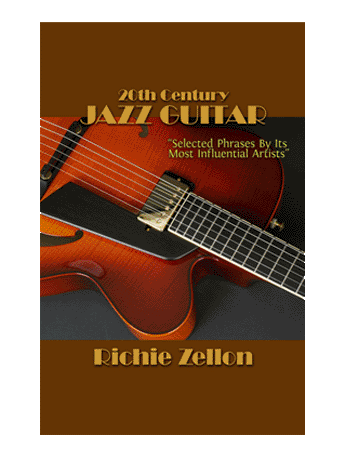Overview Of Special Considerations…
I- We must have a proper understanding of all the chord-scale relationships within the harmonic progression we wish to improvise over. In brief, this means we must understand the function of each note in a scale in relationship to its offspring chords as well as the overall tonality at hand (eg. major, minor, modal, etc).
Remember all notes fit into one of 2 categories: harmonic tones and non-harmonic tones. To summarize:
a) Harmonic Tones include all chord tones and upper extensions diatonic to the scale of the moment.
b) Non-Harmonic Tones include any “avoid notes” diatonic to the scale of the moment and all non-diatonic chromatic notes.
II- When we improvise a melodic line we are dealing with both a vertical and horizontal relationship to the current harmonic progression. The development of a good sounding phrase fully depends on an understanding of how these 2 aspects within your line interact with the moving chords.
VERTICAL:
When improvising over a given chord we should be primarily focused on outlining the most important harmonic tones of its mother scale. Thus our melodic line for most of the time takes on the shape of a gradually ascending and descending vertical structure also known as melodic contour. A good example of a vertical structure would be a 7th chord arpeggio.
HORIZONTAL:
A good example of horizontal movement takes place whenever we play a scale or any succession of notes in step-wise motion. Therefore, unless we are playing lines consisting exclusively of 3rds or larger intervals, there is an ongoing balance of horizontal and vertical movement in our melodies. However note that at the point of transition from one chord to another , our primary focus usually shifts from vertical to horizontal as we must connect both structures in a seamless linear fashion. This is what is referred to as voice leading and is best accomplished by resolving to the closest guide tone (ie. 3rd or 7th) of the new chord. Consequently the smoothest transitions employ step-wise motion


In much simpler terms, how does the chord fit with the melody I am playing? Also, do the other members of the rhythm section tend to move towards the sharp nine or the flat nine. I think of color chords visually. I see the dominant seven chord as the pivot point, and the nine, eleven, and thirteen, as being two, four, and six over seven. This demystifies things quite a bit for me. I also make copious use of the tri-tone to avoid over duplication of the root and fifth (keeping the mud out any way I can) and to give the Bass a little room to move aroiund in. Since all tri-tones (third and dominant seven or dominant seven and third) have a second optional root, this leaves me a quick back door if I need a substitution, or want a far out transposition!